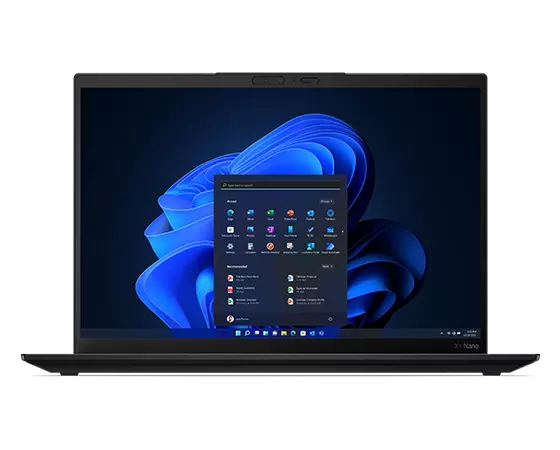Choosing the right laptop is a crucial decision as a lawyer as it is a vital tool that supports your daily tasks, from research and document drafting to communication and presentations. The best laptops for lawyers must align with the unique needs and workflow of law firms.
Whether you’re a seasoned attorney or a student in law school, understanding what makes a laptop suitable for legal work is key. To help you make your decision, we’ve compiled a list of the best laptops for your profession.
Choosing the Right Laptop as a Lawyer
Selecting the best laptop for your legal practice involves considering several factors that contribute to performance, usability, and reliability. Here’s an overview of the essential aspects to keep in mind.
Performance Needs
For legal professionals, a laptop must offer robust performance to handle a multitude of tasks smoothly. Here’s why performance should be at the top of your checklist:
- Processor: A fast and reliable processor ensures that your laptop can handle complex legal software, and multitasking between documents, research tools, and communication applications without lag.
- RAM: Adequate RAM is essential for running multiple applications simultaneously. As a lawyer, you’ll often find yourself switching between case files, legal databases, and drafting tools.
- Storage: Sufficient storage space is crucial for maintaining an extensive library of case files, legal documents, and research material. Opt for a laptop with a solid-state drive (SSD) for faster boot times and file access.
Portability and Battery
Lawyers are often on the move, attending court sessions, and client meetings, and working remotely. Portability and battery life are therefore critical:
- Screen Size and Weight: A balance between screen size and weight ensures that your laptop is easy to carry without sacrificing readability and productivity.
- Battery: Long battery life is indispensable for lawyers who spend long hours away from a power source. The best laptop for a law firm or a law student is one that can last through a full day of work on a single charge.
Display Quality and Eye Care
Hours spent reading and analyzing documents mean that display quality can’t be overlooked:
- High-Resolution Screens: A high-resolution display offers clearer text and images, reducing strain on your eyes.
- Eye Care Features: Look for laptops with built-in eye care technologies, such as blue light filters and anti-glare screens, to minimize eye fatigue during long work sessions.
Connectivity Options
In the legal field, the ability to connect with various devices and networks is essential:
- Ports: Ensure your laptop has a variety of ports for connecting to external displays, USB devices, and other peripherals necessary for presentations and client consultations.
- Wireless Connectivity: Reliable Wi-Fi and Bluetooth capabilities are crucial for staying connected to the internet and wireless devices, especially when working from courtrooms or remote locations.
Durability and Security
Given the sensitive nature of legal work, durability, and security cannot be compromised:
- Durability: A laptop with a sturdy build can withstand the rigors of daily travel and use, ensuring your investment lasts.
- Security Features: Advanced security features like biometric authentication, TPM chips, and robust encryption options are vital for protecting client confidentiality and sensitive case information.
In the following sections, we will explore specific laptop recommendations tailored for legal professionals and delve into special considerations to further tailor your choice to your individual needs and preferences.
Top Laptop Recommendations for Lawyers
(Credit: VAIO)
1. VAIO SX14
- Processor: Equipped with the latest Intel Core processors, offering top-notch performance for legal software and multitasking.
- Portability: Ultra-lightweight design and a thin profile, make it easy to carry to courtrooms or meetings.
- Battery: Offers extended battery life, ensuring you can work through long hours without needing a charge.
- Display: Features a high-resolution 14-inch screen with anti-glare technology, ideal for reading and drafting documents.
- Security: Built-in security features like fingerprint sensor and TPM technology to protect sensitive information.

(Credit: Lenovo)
2. Lenovo ThinkPad X1 Carbon
- Performance: Delivers powerful performance with Intel Core processors and ample RAM for running demanding legal applications.
- Durability: Renowned for its rugged build, meeting military-grade standards for durability and reliability.
- Battery Life: Impressive battery life that supports long days of work, whether you’re in the office or on the field.
- Connectivity: Offers a wide range of ports and wireless connectivity options, making it easy to connect to peripherals and networks.
- Security: Enhanced security features, including a fingerprint reader, IR camera for facial recognition, and ThinkShutter for webcam privacy.
(Credit:Dell)
3. Dell XPS 15
- Display: Stunning 15-inch 4K Ultra HD display, providing excellent clarity for document work and multimedia presentations.
- Performance: High-performance processors and graphics, suitable for both legal software and any graphical content.
- Portability: Despite its larger display, it maintains a slim profile and lightweight, balancing screen space and portability.
- Battery Life: Offers a solid battery life, crucial for lawyers working remotely or traveling.
- Security: Comes with advanced security options, including a fingerprint reader integrated into the power button.

(Credit: Apple)
4. Apple MacBook Pro
- Performance: Features powerful M-series processors, offering exceptional performance and efficiency for all legal tasks.
- Display: High-resolution Retina display with True Tone technology, reducing eye strain during prolonged document review.
- Battery Life: Known for its remarkable battery life, it can easily support a full day’s work on a single charge.
- Ecosystem: Seamless integration with other Apple devices, beneficial for lawyers who use iPhones or iPads for their work.
- Security: Offers advanced security features, including Touch ID, secure boot, and encrypted storage options.

(Credit: Microsoft)
5. Microsoft Surface Laptop 4
- Versatility: Offers a balance between tablet and laptop, with a touchscreen and pen support for note-taking and document annotation.
- Performance: Equipped with the latest processors, it handles legal applications and multitasking with ease.
- Portability and Battery Life: The lightweight design and long battery life make it ideal for lawyers on the go.
- Display: The high-resolution PixelSense display is easy on the eyes, and perfect for long hours of reading.
- Connectivity: Includes essential ports and wireless connectivity options, along with the Surface Dock for expanded connectivity.
These laptops represent the best of what’s available for legal professionals, each with its unique strengths. Whether you prioritize performance, display quality, or portability, there’s a laptop on this list that will meet your needs as a lawyer, ensuring that you remain productive, secure, and efficient in all your legal endeavors.
In the next section, we’ll explore special considerations that may influence your decision, such as the ongoing debate between Mac vs. PC for lawyers, the utility of 2-in-1 devices, and strategies for future-proofing your technology investment.
Special Considerations
When choosing the best laptop for lawyers, there are additional factors that may sway your decision based on personal preferences, specific needs, or the nature of your practice. Understanding these nuances can help you make a more informed choice, ensuring that your laptop not only meets your current demands but also adapts to future changes in the legal landscape.
Mac vs. PC for Lawyers
The debate between Mac and PC has long been a topic of discussion in various professional circles, including law. Each platform offers distinct advantages and potential drawbacks for legal work:
Mac:
- Pros:
- User Experience: Macs are renowned for their intuitive interface and stable operating system, potentially increasing productivity.
- Ecosystem Integration: Seamless connectivity with other Apple devices can enhance workflow, especially for users already invested in the Apple ecosystem.
- Security: Macs generally have a strong reputation for security, an essential consideration for handling sensitive client information.
- Cons:
- Software Compatibility: While many legal applications are available for Mac, some specialized legal software may only run on Windows, necessitating workarounds like Boot Camp or virtual machines.
- Price: MacBooks often come with a higher price tag compared to similarly specced PCs, which could be a significant factor for law students or solo practitioners.
Windows PC:
- Pros:
- Software Compatibility: Windows PCs are the most widely used operating system in the legal industry, ensuring compatibility with virtually all legal software.
- Variety and Customization: A broader range of models, specs, and price points allows lawyers to find a PC that best fits their specific needs and budget.
- Upgradeability: Many PCs are easier to upgrade or repair, extending the lifespan of the device.
- Cons:
- Virus Susceptibility: PCs may be more susceptible to viruses and malware, requiring additional security measures and vigilance.
Choosing between a Mac or PC ultimately depends on your personal preference, specific software needs, and whether you value the seamless integration of Apple’s ecosystem or the flexibility and compatibility offered by Windows-based PCs.
2-in-1 Laptops and Tablets
For lawyers who value versatility and convenience, 2-in-1 laptops and tablets offer a compelling option. These devices combine the functionality of a traditional laptop with the portability and touch-screen capabilities of a tablet, ideal for note-taking, client consultations, and reading documents on the go.
When considering a 2-in-1 device, evaluate how often you’d use the tablet mode and whether the device’s performance meets your legal software needs.
Future-Proofing Your Investment
Technology evolves rapidly, and investing in a laptop that remains relevant and capable over several years is essential for legal professionals. Here are some tips for future-proofing your laptop purchase:
- Opt for Higher Specs: Choose a model with a faster processor, more RAM, and larger storage than you currently need to accommodate future software updates and more demanding applications.
- Consider Upgradability: Some laptops allow you to upgrade components like RAM and storage. This flexibility can extend your device’s lifespan and adaptability to future needs.
Warranty and Support: Look for laptops with extended warranty options and reliable customer support. Knowing that you can quickly resolve issues can make a significant difference in the long run.

